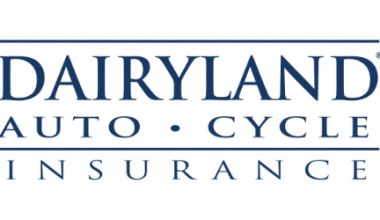Business insurance protects your company’s assets and income. It also protects you from liability lawsuits. The majority of small business operators require insurance. It can help secure the livelihood you’ve worked so hard to establish. With the perfect small business insurance, you can cover costly damages and lawsuits. In this article, we’ll discuss small business insurance general liability costs, progressive, and requirements.
Small Business Insurance General Liability
General liability insurance, often known as business liability insurance, is a form of insurance coverage that protects firms from claims arising from typical company operations. Small firms often receive coverage by commercial liability insurance for bodily injuries, medical costs, advertising injuries, and other expenses.
What is the coverage under the General Liability Insurance?
General liability insurance covers the price of responding to a claim that your company caused property damage or bodily harm. It can assist in paying for:
- Medical expenses
- Bodily harm or property damage caused by your business.
- Repair expenses such as Renter’s property damage caused by a covered loss such as fire, lightning, or explosion.
- Legal fees for defending your company in a lawsuit
- Settlements and judgments obtained as a result of a lawsuit filed by a customer or client
- Reputational harm caused by malicious prosecution, defamation, libel, unlawful eviction, invasion of privacy, and other actions.
- Advertising injuries, such as copyright infringement from your company’s advertisements.
What Is the Cost of General Liability Insurance?
Various factors determine the cost of your general liability insurance. One consideration is the nature of your business. Companies in higher-risk industries pay more than lower-risk businesses. Construction companies, for example, are likely to pay a greater cost than consultancy firms. Other factors that can also influence the cost of your general liability insurance include your company’s:
- Years of expertise
- Location
- Size
- The state of the building
- Policy specifics such as coverage limitations and deductibles
- History of insurance claims
Obtaining a quote is the best way to determine the exact cost of your business. You can however customize your coverage to meet your individual requirements. Meanwhile, you can get a quote today to learn how to obtain liability insurance to protect your company.
Small Business Insurance Costs
Your small business insurance costs differ from insurance companies and states. It however depends on the types of insurance coverage you will be needing for your business. So, we cannot estimate the general costs, but here are simple tips to help you save money on your small business insurance.
Shopping around is one of the simplest methods to save money on business insurance. You can compare rates from various insurance companies to get a policy that fits your budget.
There are other ways to save money as well. You may be able to save money by bundling plans. A business owner’s policy, which covers general liability insurance and commercial property insurance, is the most typical bundle.
The type of insurance you choose determines the amount you will pay. To save money on premiums, you can choose a greater deductible or lower coverage limits.
Progressive Small Business Insurance
Progressive Casualty Insurance Company, Inc. sells insurance in the United States. Their headquarter is in Mayfield Village, Ohio, and has over 450 offices around the US. It is one of the largest insurance companies in the United States after 70 years in operation.
Progressive Insurance provides small company insurance coverage such as General Liability, Commercial Property, Workers Compensation, Commercial Auto, and others. You can also acquire a Progressive business insurance quote in just a few minutes and buy your coverage online. The quoting process is highly rated in Progressive small business insurance reviews.
If you own a small business and want to purchase liability insurance, read Progressive small business insurance reviews to discover more about Progressive’s products. On the whole, the Progressive small business insurance reviews on the Internet are positive.
Small Business Insurance Requirements
As the owner of a small business, you are responsible for obtaining various types of insurance for your organization. Protecting your company’s assets, property, and the health and well-being of your staff are just a few of the reasons why business insurance is crucial and, in many circumstances, required.
There are numerous types of business insurance that are required by law to protect you, your company, and your employees. The insurance requirements for businesses are set by your state government. Most states mandate employers to provide workers’ compensation insurance, unemployment insurance, as well as state disability insurance to their employees. Insurance for specific business operations may also be required by your state. To discover more about your state’s mandated insurance requirements for small businesses, contact your state’s Department of Insurance or your local city government offices.
Hence, if you do not secure the necessary insurance, you may be unable to start a new business. If your company is already up and running and you do not secure or maintain adequate insurance coverage, you also risk incurring significant fines or losing your business license.
In general, all employers must have the following types of business insurance:
Workers’ Compensation
In most areas, obtaining workers’ compensation for full-time and part-time employees is critical, and failing to comply with state requirements can result in substantial penalties for business owners. When it comes to offering workers’ compensation coverage, it is vital to grasp the distinction between W2 employees and independent workers. Some business owners demand independent contractors to present proof of insurance, while others specify in their job contracts that they don’t give workers’ compensation. To be safe, consult your state’s Department of Insurance or a qualified insurance agent familiar with your state’s rules before working with any freelancers or contractors.
Unemployment Insurance
Unemployment insurance is a joint state-federal program that pays cash benefits to qualified workers. Each state administers the program, although states must adhere to federal requirements for small business insurance. The unemployment insurance program in each state is funded by taxes paid by businesses operating in that jurisdiction. Unemployment insurance is paid for by your company using funds collected through payroll taxes. Companies that lay off more employees and have greater payrolls contribute more to the state employment trust fund than companies that do not.
Disabilities Insurance
Employers can provide partial pay replacement insurance coverage to their eligible employees for non-work-related sickness or insurance through disability insurance coverage. Disability insurance is compulsory for employers in California, Hawaii, New Jersey, New York, Puerto Rico, and Rhode Island. Hence, you should check with your state’s Department of Insurance to see if this coverage is necessary.
Conculsion
The federal government requires every business with employees to have workers’ compensation, unemployment, and disability insurance. Some states also require additional insurance. Laws requiring insurance vary by state, so visit your state’s website to find out the requirements for your business.
Frequently Asked Questions
How much is basic small business insurance?
Small business owners may expect to pay roughly $63.53 per month on average for Public Liability insurance. According to research, over 62 percent of small firms pay less than $50 per month for Public Liability insurance, while approximately 25 percent pay between $51 and $100 per month.
Which insurance is best for small business?
Small businesses are often covered by commercial or general liability insurance for bodily injuries, medical costs, advertising injuries, and other expenses.
What is a business asset insurance?
Business assets insurance is often used to safeguard your physical business assets such as commercial property, business equipment, business vehicles, and money.
Why do you need commercial general liability insurance?
A commercial general liability (CGL) coverage protects your company from financial loss if you are found liable for property damage, bodily injury, personal injury, or advertising injury as a result of your services, business operations, or personnel.






